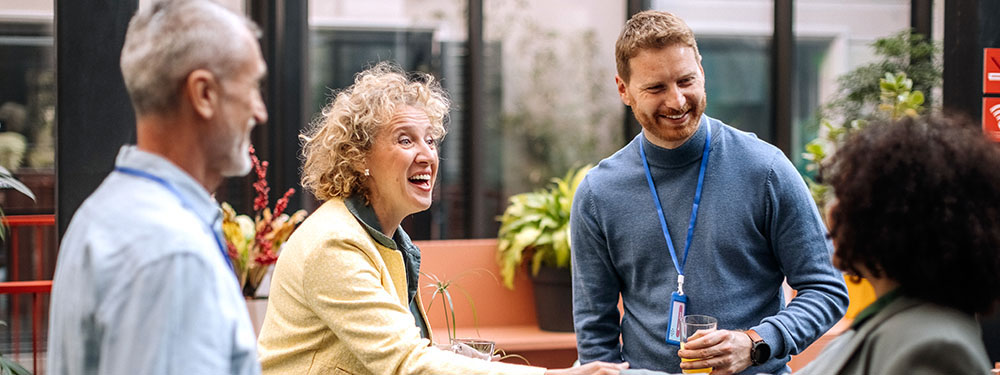
It was great to see so many colleagues from across our network at our member event on 2nd December. It is always great to connect in person and share ideas.
On the day we had an excellent line-up of speakers:
- Nic Ponsford, founder and CEO of the Global Equality Collective (GEC) https://www.thegec.education/
- Dr Freya Spicer-White, Clinical Psychologist and Chief Clinical Officer, Outcomes First Group
- Charlotte Downs, Deputy Headteacher, Riverside School
- Samantha Warwick, Director of SEND, Formby High School
All of our speakers shared invaluable expertise and practical suggestions, some of which we have tried to capture here. Students from Riverside School shared their reflections in a very powerful and memorable video.
This day is only the start of a planned ongoing conversation around what is obviously a complex issue. However, there were some key themes which emerged during the day and will inform future work. We have tried to summarise some of the learning from the day below.
Seven questions for further consideration
- What is your school’s narrative about neurodiversity? Are assumptions being made about the abilities and needs of neurodivergent young people in your school. Is the uniqueness of every individual being considered?
- How do you ensure that support for neurodivergent young people is a whole school priority? Many of the strategies which can support neurodivergent pupils can be helpful to all. Whole school adaptations are more likely to promote inclusion than adjustments for an individual.
- What language is used when talking about the needs of neurodivergent young people? Does advice to staff focus on what can be achieved with the right support rather than presenting a deficit model?
- Do all members of staff have an up-to-date understanding of neurodivergence? Discussion of ‘low functioning’ and ‘high functioning’ individuals is now widely discredited, recognising that each individual has a different pattern of ability and challenge and that their level of need can change substantially day to day and even hour to hour.
- What is the experience of your neurodivergent staff? What could be done to support them to succeed in your school community.
- What do parents tell you? It goes without saying that parents can provide invaluable insights into what works for their children. Providing opportunities for open and frequent conversations about what is working and where adjustments might be helpful can be the key to establishing effective provision.
And lastly, and most importantly…
- What do your pupils tell you? Throughout the day, all of the speakers stressed the vital importance of listening to the young people themselves. A powerful video from students at Riverside School demonstrated how articulate young people often are in terms of explaining what they need and helping teachers to understand them. Students highlighted numerous ways in which they feel supported at their school – having opportunities to move, go for a walk, have time to talk and teachers ensuring that they know what the plan is. They talked memorably about their hopes for the future and the vital importance of being listened to and feeling respected. As one student said “it’s the most important thing.”
We look forward to continuing the conversation across the network. We would love to hear about your experiences and ideas – please get involved.
Five stand-out ideas
- “Every interaction is an intervention” – recognising that the small things make a big difference. Careful focus on how every aspect of a pupil’s day plays out.
- “Be curious, not furious” – ensuring that when issues we respond with curiosity not frustration. Linked to this is the understanding that the ability of neurodivergent young people to regulate and fulfil expectations can vary hugely day to day. It is also important to remember that young people are very unlikely to be able to articulate their needs when they are dysregulated – the questions need to be asked when things are calm and they’ve had time to reflect.
- “Different, not less” – some of the language used in describing neurodivergence is unhelpful and negative (disorder, disability etc.) It is vital that everyone recognises that we are all neurodiverse – we all think and learn in different ways. When someone is neurodivergent, their brain functions differently to what is considered to be the norm, but some form of neurodivergence is not unusual.
- “Remember we have 8 senses not three”. We can probably remember the five (smell, taste, touch, sight, hearing) but don’t forget the other three – vestibular (balance), proprioceptive (movement) and interoceptive (awareness of internal signals in your body). These additional senses can be very important to neurodivergent people.
- “Usualising” – much of the support we might offer neurodivergent people can also be beneficial to everyone. Encourage all young people to engage with assistive technology rather than limiting its use to selected pupils. Using visuals to establish expectations and set out schedules is hugely beneficial to neurodivergent people, but is helpful to everyone.
A strong message from the conference was that school leaders are keen to understand practical strategies to support our neurodivergent learners, and to hear what other schools are doing.
To get involved in the conversation fill out this short survey to answer the question: What are you currently doing to support you neurodivergent learners?
